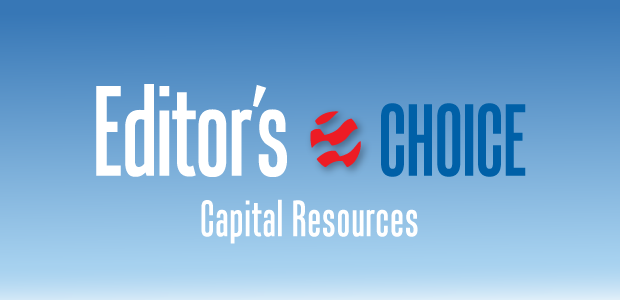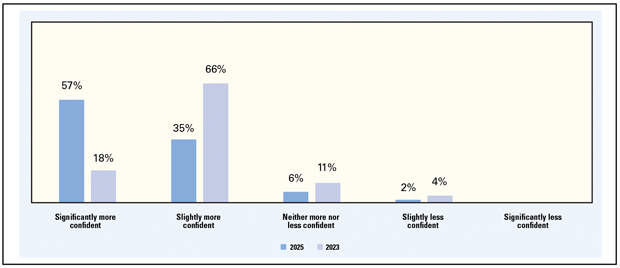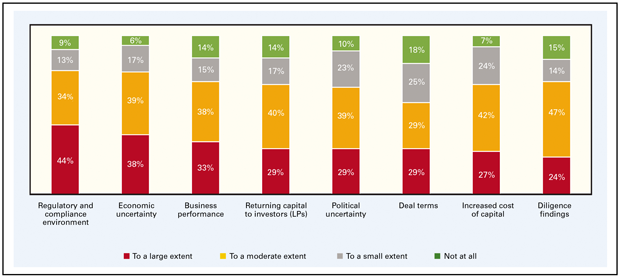
Investors See Deal Volume Growing
CHICAGO—When the law firm Katten surveyed private equity investors, independent sponsors and family offices in December, it found optimism tempered by familiar challenges and ongoing uncertainty.
“As 2025 opened, hope for a resurgent deal market under the new presidential administration had U.S. middle-market private equity investors forecasting a brighter outlook for transactions,” the firm writes in its 2025 Middle-Market Private Equity Report. “Yet while prospects may have improved compared to the recent multiyear slump—offering hope for increased exit opportunities—rising volatility is clouding the outlook, with dealmakers expecting challenges to persist as regulatory and fiscal uncertainty potentially offset anticipated gains.”
Almost 80% of respondents highlighted the investment opportunities created by industries’ efforts to improve efficiency by digitizing operations. Respondents also expressed optimism about the economy, which Katten attributes partly to stabilizing interest rates and anticipated extensions to certain elements of the Tax Cuts and Jobs Act.
In another positive indicator, the survey found greater confidence transactions would close. “Investors surveyed after the election in late 2024 were broadly hopeful that transactions in the coming year would move forward as expected, signaling their belief in a steadying deal market as interest rates moderated and access to capital improved (compared to late 2022 and 2023 levels),” Katten describes. “Nearly 60% of PE leaders we surveyed were significantly more confident that current deals will progress as planned compared to the previous year—a dramatic increase from the 18% who said the same in our 2023 report” (Figure 1).
FIGURE 1
Confidence Deals Will Progress As Planned: Now Versus 12 Months Ago
Note: Based on responses to “When signing a letter of intent today, what is your general level of confidence the deal will progress as planned with minimal disruptions versus one year ago?”
83% of respondents expected more platform deals (ones that involve buying a strong company as a foundation for further growth) to take place during 2025 than in 2024, and 85% anticipated an increase in add-on acquisitions, Katten shares. “Respondents expressed a slight preference toward platform acquisitions over add-ons when asked about expectations for their own organization’s activity in the coming year—another sign of a healthy market,” the firm says. “Taken together, the results suggest increased confidence in financing availability and moderating borrowing costs after the Federal Reserve’s recent rate cuts.”
“When markets slow down, so do platform deals—especially when interest rates are high and access to capital is limited, as in 2023 and much of 2024. Those conditions tend to refocus PE energy on smaller, more strategic add-on deals as investors wait for the environment to improve,” explains Kimberly T. Smith, partner and global chair of Katten’s corporate department.
Katten adds that 80% of survey participants expected the availability of exit opportunities to increase either somewhat (43%) or significantly (37%) from 2024, when exits were sluggish.
“The increased confidence we saw from respondents regarding a range of transaction types —platform deals, add-ons and exits—signals the potential for improved dealmaking momentum in a market that has swung from the M&A boom of 2021, when money was cheap and more easily available, to the subsequent slump as interest rates soared,” assesses Smith. “However, uncertainty surrounding the impact of tariffs on business forecasts is now casting a shadow over some M&A activity.”
Katten says it surveyed 39 dealmakers in mid-March to determine how expectations for the year had shifted. “That sentiment check showed the outlook darkening somewhat as increased uncertainty around tariffs and other U.S. policies bore out concerns cited by our initial survey respondents,” it reports. “Nearly half (48%) of dealmakers surveyed in March were still positive to some degree about middle-market PE activity over the course of the year, while fewer than one third (29%) expressed negativity. Perhaps most telling, more than 60% say their outlook has worsened since the beginning of the year.”
Familiar Challenges
While generally optimistic, Katten says respondents to its December survey acknowledged that many of the deal impediments they faced in 2024 (Figure 2) would persist. “A majority of PE investors surveyed in late 2024 expected several challenges from that year to carry over into 2025—led by economic uncertainty, which 58% anticipated would be equally or more difficult to navigate than last year. More than half said the same of the regulatory and compliance environment and the increased cost of capital,” it reveals.
FIGURE 2
Dealmaking Challenges: Past 12 Months
Note: Based on responses to “Over the past 12 months, to what extent have the following presented a challenge for your organization’s dealmaking efforts?”
While exit opportunities are becoming more available, 37% of respondents still identified finding those opportunities as a challenge. “This tracks with 2024 Pitchbook exit data that shows the middle market lagging the broader PE market and also pacing below the pre-pandemic normal,” Katten observes.
The firm points out that middle-market exits often involve sales to other PE firms. While that creates buying opportunities, high capital costs may keep would-be buyers from taking advantage of them. “All told, the tempered optimism for 2025 may be more a reflection on progress from a challenging 2024, versus anticipation of a full-fledged rebound to 2021 deal conditions,” Katten says.
2021 was a record year, with $505.9 billion spread across 4,424 transactions, Katten notes.
“In a landscape where debt markets remain choppy, middle-market PE investors are increasingly accustomed to needing to provide full equity backstops to support transactions in competitive situations,” says Christopher S. Atkinson, partner and co-chair of Katten’s mergers and acquisitions and private equity practice.
Indeed, 87% of respondents to the initial survey expected to see more sponsors agreeing to all-equity deals in 2025, extending a trend Katten noted in its 2023 report. “In extreme cases where debt cannot be arranged before closing, investors may proceed with an all-equity deal with the intent of then leveraging on a post-closing basis when interest rates moderate,” it comments.
Promising Sectors
Energy ranked among the most promising sectors for middle-market PE in 2025, with 47% of respondents checking it when asked which industries represent the greatest opportunities over the next 12 months. That puts energy in fourth place, behind business services (67%), technology (56%) and financial services (49%) but ahead of insurance (40%), consumer and retail (39%), manufacturing and industrial (37%) and healthcare and life sciences (35%).
“PE investors view business services as an area of focus because, in many cases, such services are required and cannot be deferred—consider security services, commercial landscaping, waste management, property management, janitorial and the like,” says J. David Washburn, partner and co-chair of Katten’s M&A and PE practice. “Specialty and value-added distributors also present interesting investment opportunities since they tend to mitigate risk in uncertain economic environments, given their depth of understanding in a shifting global landscape.”
Survey participants reported using a variety of approaches to keep deals going in uncertain times. “Nearly six in 10 (58%) said their organization is strengthening due diligence processes—the leading answer,” Katten details. “Other mitigation tactics included increasing focus on portfolio company operations improvements (55%) and relationship building with financing partners (49%).”
The primary survey behind Katten’s 2025 Middle-Market Private Equity Report was conducted online in December. The 114 respondents were based in the United States and represented companies with more than $10 million worth of assets under management, with some overseeing upward of $10 billion. 78% were primarily private equity investors, with 11% being independent sponsors and another 11% coming from family offices, Katten describes.
For other great articles about exploration, drilling, completions and production, subscribe to The American Oil & Gas Reporter and bookmark www.aogr.com.

















